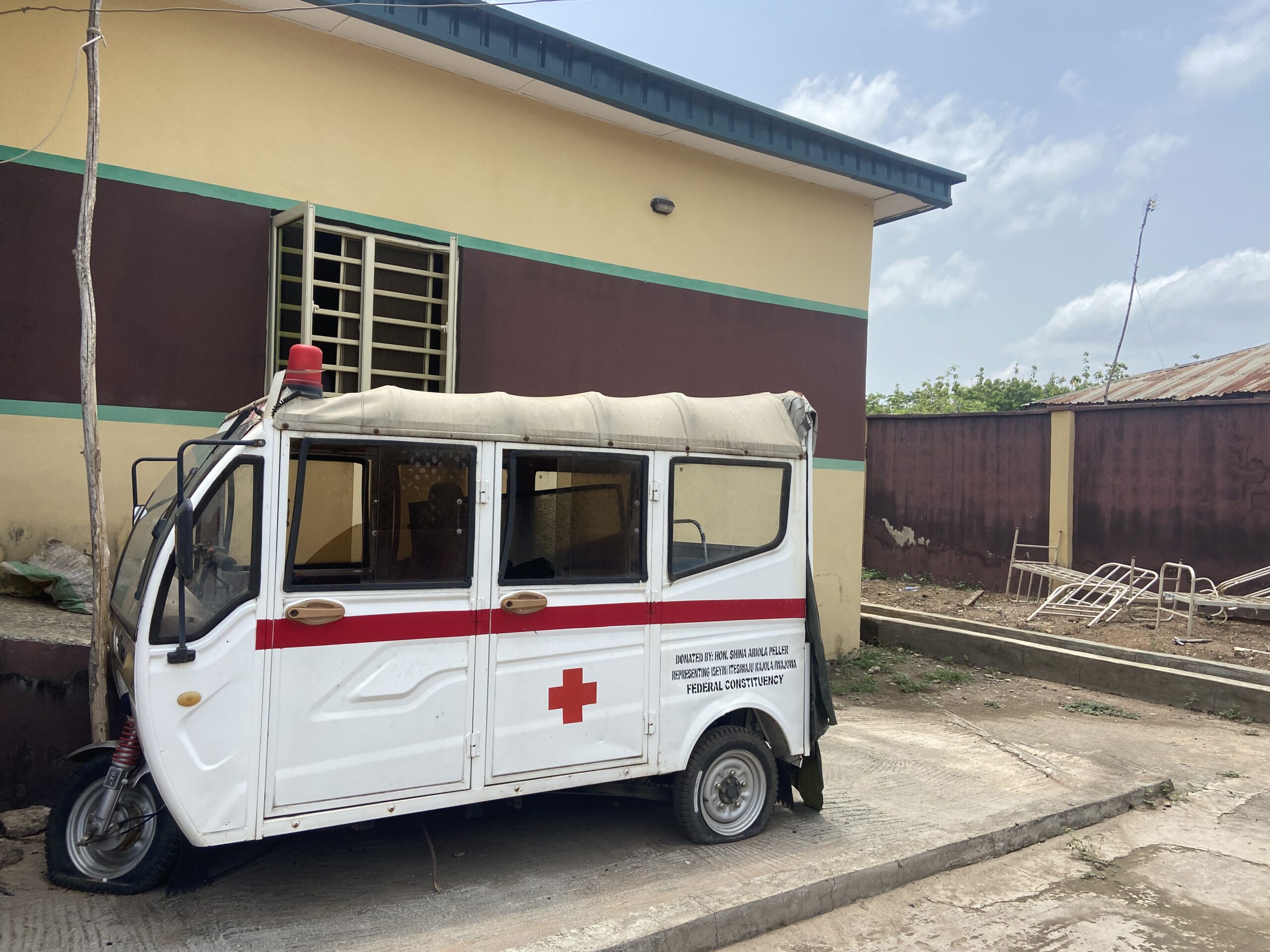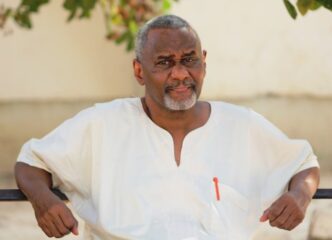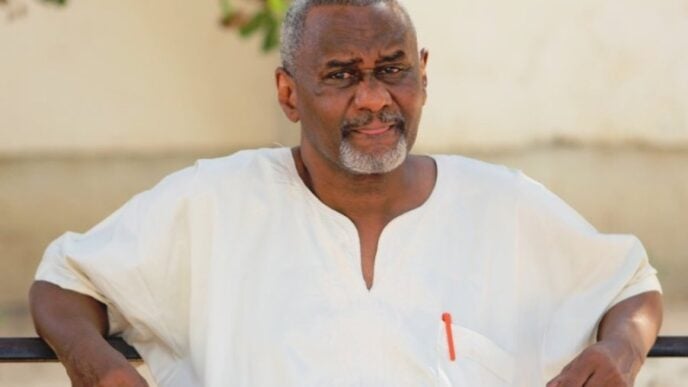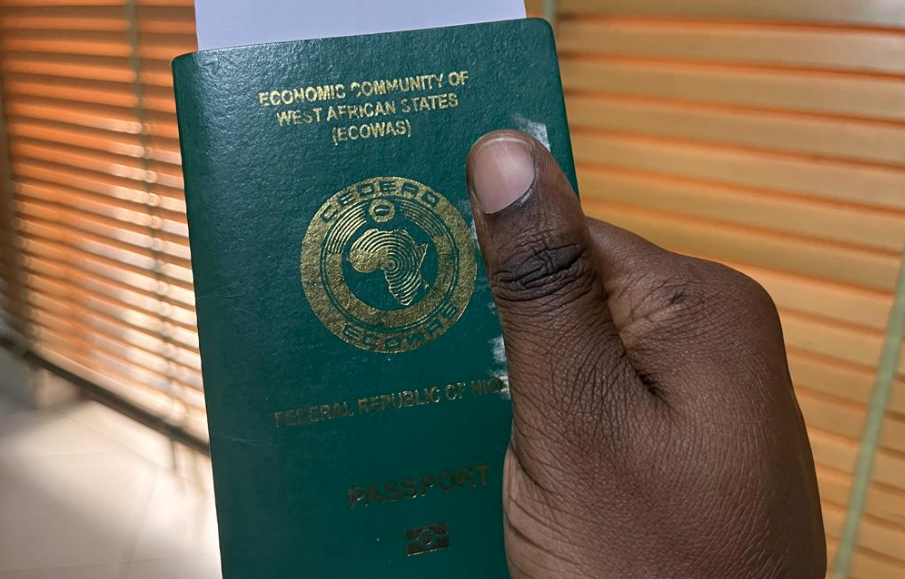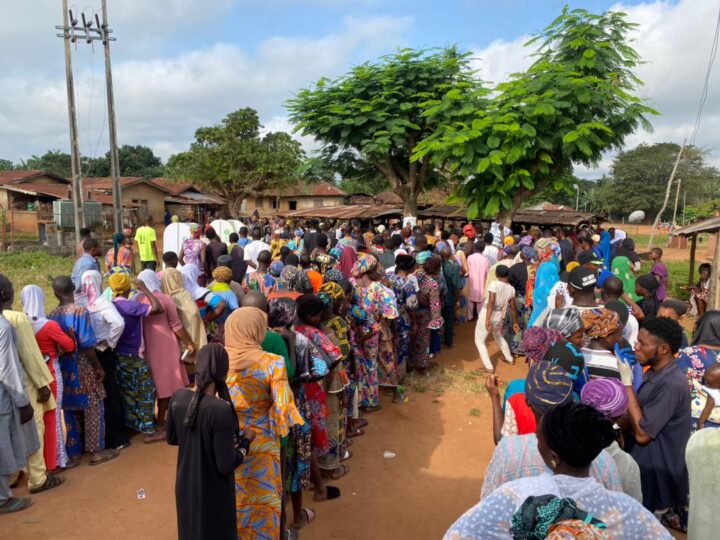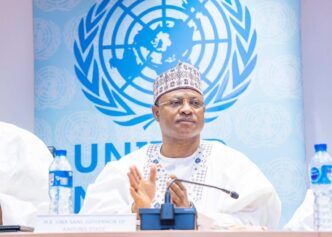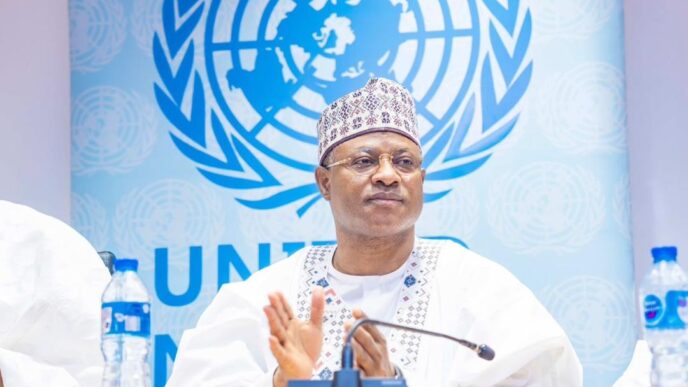Male doctor and testicular cancer patient are discussing about testicular cancer test report. Testicular cancer and prostate cancer concept.
Photo credit: istockphoto
BY SYLVESTER OJENAGBON
Every year, February 4 is observed as World Cancer Day. And one of the challenges men face is prostate cancer. Statistics show that, globally, approximately 1 in 8 men will be diagnosed with prostate cancer at some point during their lifetime. In Nigeria, it is said to be one of the most prevalent and deadly cancers affecting men. Unfortunately, it remains a topic many avoid discussing. Even where there is a case of death arising from prostate cancer, the family of the deceased often keeps sealed lips. This gives the impression that dying of prostate cancer, or any other type of cancer, is something to be ashamed of.
I was in a conversation with an elderly male relative recently and was shocked at the number of people we all know, some of them having been in government at the highest level, who succumbed to prostate cancer. This relative was close to some of them, which was the only reason he got to know what caused their death. My conclusion, coming out of that conversation, was that prostate cancer has no regard for status or social standing. It can afflict anyone and will be fatal, as it often is, if not properly handled or tackled with the seriousness and speed it requires.
Now, prostate cancer occurs when the cells in the prostate grow abnormally, often forming a tumour. In its early stages, prostate cancer may not show obvious symptoms. This makes it harder to detect. However, as it progresses, it can cause issues like difficulty urinating, blood in the urine, pelvic discomfort, or even bone pain if the cancer spreads.
Advertisement
Although the exact cause of prostate cancer is unknown, several factors contribute to the risk of developing the disease. One of the most significant factors is age, as men over 50 are more likely to develop it—with a higher incidence in older men. Curiously, a study found that it is the second most common cancer even in young Nigerian men under 55 years.
Other risk factors include family history (very likely you can have it if a close relative had it), diet, lifestyle, and race. Men of African descent have been found to be at higher risk than other ethnic groups. Curiously, other studies show that Nigerian men have a significantly higher incidence of prostate cancer compared to their counterparts elsewhere.
In terms of mortality, Western Africa is said to have the fifth highest risk for prostate cancer mortality in the world. And Nigeria has the largest population in the region. For Nigerian men, statistics reveal 32·8 cases and 16·3 deaths per 100,000 men. The high rate of death is largely due to late-stage diagnoses, which are often made when the cancer has spread beyond the prostate gland, thus making it more difficult to treat. Many men only seek medical help when symptoms have become severe, by which time the disease may have already advanced. This delay in diagnosis is compounded by the country’s underdeveloped healthcare infrastructure, which affects the availability of necessary diagnostic tools and treatments.
Advertisement
Contributing to the problem of prostate cancer in Nigeria is the lack of awareness about the disease. Many Nigerian men are unaware of the risk factors, early signs, and the importance of regular screening. There is also a widespread misconception that prostate cancer only affects older men, so younger men often do not think or seek information about it until much later in life, by which time it is sometimes too late.
Lack of access to healthcare equally contributes significantly to the problem of prostate cancer in Nigeria. Although major cities like Lagos and Abuja have some hospitals and clinics equipped to treat prostate cancer, many rural areas are severely underserved. Diagnostic services such as the Prostate-Specific Antigen (PSA) test and digital rectal exams (DRE), which are essential for early detection, are not widely available or affordable. The cost of treatment, including surgery or radiation therapy, is prohibitive for many Nigerians, making it difficult for patients to receive the needed care.
One cannot but acknowledge the fact that the past few years have somehow witnessed efforts by both government and non-governmental organisations (NGOs) in the country to raise awareness about prostate cancer. Awareness campaigns have focused on educating men about the symptoms, risk factors, and the importance of screening.
In addition, some healthcare providers have been offering free or low-cost PSA testing in certain areas, with the aim of making early detection in a broader population possible. However, these initiatives are still not widespread enough to make a significant national impact. To truly tackle the problem of prostate cancer, the government needs to invest more in creating awareness and in healthcare infrastructure, particularly in rural areas, to ensure that men across the country have access to the information, diagnostic tools, and treatments they need to fight this silent battle.
Advertisement
Ojenagbon, a health communication expert, lives in Lagos.
Views expressed by contributors are strictly personal and not of TheCable.
Add a comment


